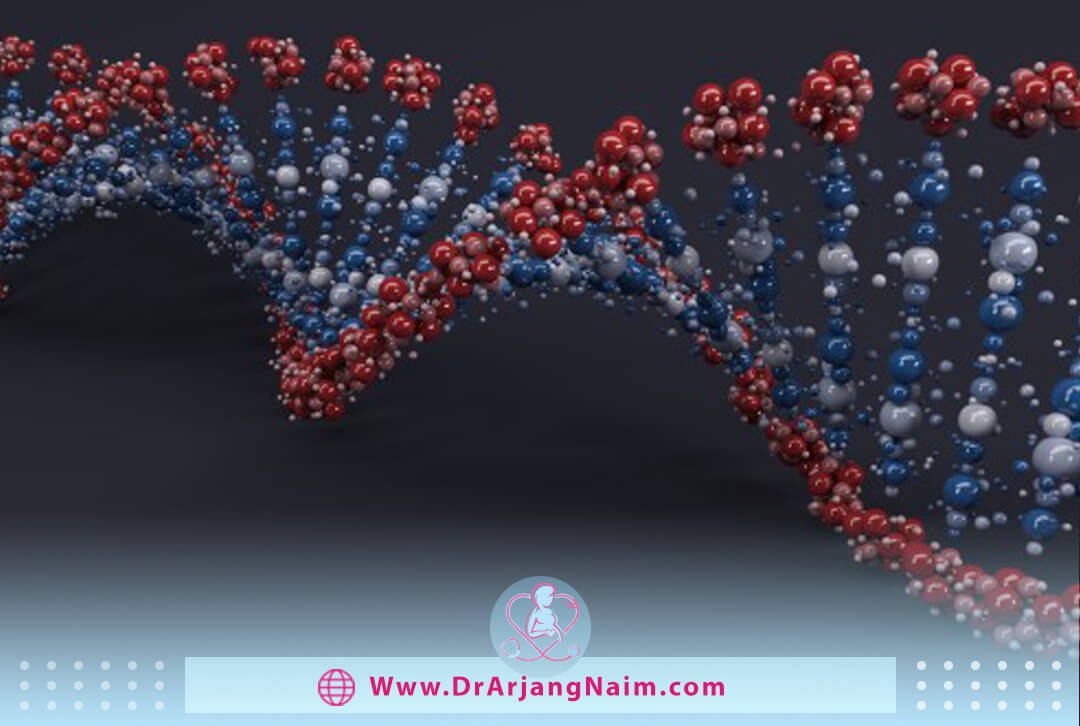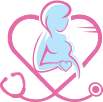Early menopause is when the final menstrual period occurs between 40 and 45 years. Most women start menopause between the ages of 45 and 55. The average age of onset of menopause is 51 years. Early menopause usually refers to the onset before the age of 45. Premature menopause or premature ovarian failure occurs before the age of 40.
Menopause occurs when the ovaries stop producing eggs, causing estrogen levels to drop. Estrogen is a hormone that controls the reproductive cycle. A woman is menopausal when she has not had a period for more than 12 months. But accompanying symptoms, such as hot flashes, begin long before menopause in a period called perimenopause. Anything that damages the ovaries or stops the production of estrogen can cause early menopause. This includes chemotherapy for cancer or the ovaries’ removal, But early menopause can occur even if the ovaries are still intact.
Symptoms
Women may start an irregular menstrual cycle a few years before their last period. If a woman has irregular cycles, she should talk to her doctor to determine the possible causes. The symptoms of early menopause are very similar to the usual signs. These can include the following:
- Hot flashes
- Night sweats
- Vaginal dryness
- Urinary urgency
- Joint and muscle aches and pains
- Changes in libido
- Difficulty concentrating
- Weight gain
- Hair loss or thinning
- More urinary tract infections
- Difficulty sleeping
- Emotional changes
- Dry skin, dry eyes, or dry mouth
- Breast tenderness
- Racing heart
- Headaches
Causes

There are many reasons for early menopause. It is clear that surgery to remove the ovaries leads to immediate menopause, and chemotherapy and radiotherapy weaken the ovaries, but other factors can cause early menopause.
Genetics
Unless there is a specific cause for menopausal symptoms, The reason is probably genetic. The age of onset of menopause is most likely genetic. Knowing at what age a mother’s menopause begins can provide clues as to when a girl begins.
Lifestyle factors
Some lifestyle factors may affect the onset of menopause. Smoking has anti-estrogenic effects that can cause premature menopause. Numerous studies have shown that smokers have premature menopause. Women who smoke may start menopause a year or two earlier than women who do not smoke. Body mass index (BMI) can be the cause of premature menopause. Estrogen is stored in adipose tissue. Very thin women have lower estrogen stores, which are depleted faster. Some research also shows that a vegetarian diet, lack of exercise, and lack of sunshine can cause early menopause.
Chromosome defects
Some chromosomal defects can lead to early menopause. Turner syndrome, for example, involves being born with a defective chromosome. Women with Turner syndrome have ovaries that do not function properly. This often causes them to menopause early. Other chromosomal defects can also cause early menopause. This includes pure gonadal dysgenesis, a type of Turner syndrome. Under these conditions, the ovaries do not function. Instead, the period and secondary sexual characteristics should be brought about by hormone replacement therapy, usually during puberty. Women with fragile X syndrome or a genetic carrier of the disease may also experience early menopause.
Autoimmune diseases
Premature menstruation can signify an autoimmune disease such as thyroid disease and rheumatoid arthritis. In autoimmune diseases, the immune system confuses a part of the body with an attacker and attacks it. Inflammation caused by some of these diseases can affect the ovaries. Epilepsy is a neurological disorder caused by seizures in the brain. Women with epilepsy are more likely to develop premature ovarian failure.
Chemotherapy or pelvic radiation therapy for cancer
These treatments sometimes damage the ovaries and cause menstruation to stop temporarily or permanently. Like environmental toxins, these cancer treatments can damage the genetic material of ovarian cells. But the damage depends on several factors, such as medicine, the radiation dose, the age, and the area of the body that has been irradiated. Chemotherapy and radiation therapy can make pregnancy difficult or prevent pregnancy. Not all women who have had chemotherapy or radiation will go through menopause. The younger women who receive chemotherapy or radiation therapy, the less likely they are to have early menopause.
Surgery to remove the ovaries
Removal of both ovaries during surgery can cause menopausal symptoms. After this operation, menstruation stops, and hormone levels decrease rapidly. There will also be severe symptoms such as hot flashes and decreased libido.
Surgery to remove the uterus
The ovaries are in place in some women who have had a hysterectomy. In such cases, menstruation stops, and the woman can no longer conceive but may not menopause because the ovaries continue to produce hormones. These women may experience normal menopause 1 or 2 years earlier than expected.
Diagnose
The time leading up to menopause is called perimenopause. During this period, irregular menstruation may occur along with other symptoms. Tests are usually not needed to diagnose. Most women can diagnose menopause based on their symptoms. The doctor can order hormonal tests to determine if symptoms are due to menopause or another illness. These are the most common hormones to consider.
Anti-Mullerian hormone (AMH)
Antimalarial hormone, or AMH, is produced by granulosa cells in the ovarian follicles. Consider storing ovaries as an egg basket. Every woman is usually born with a basket full of eggs, which are destroyed throughout life. The AMH test can show the number of eggs. Low levels of AMH refer to low ovarian reserve (DOR) or egg count, so this hormone is associated with fertility. In other words, if you have a DOR, the egg basket will start to empty; this test is also used to diagnose early menopause.
Estrogen
Estrogens are a group of sex hormones that create and maintain female characteristics in the human body. These hormones cause the formation of secondary female characteristics, including the breasts, the regulation of the menstrual cycle, the reproductive system, and their growth. An imbalance in the amount of estrogen in a woman’s body leads to some diseases and physical changes. The doctor may check estrogen levels. During menopause, estrogen levels decrease.
Follicle-stimulating hormone (FSH)
If FSH levels are steadily higher than 30 mIU / ml, and a woman has not menstruated for a year, menopause is more likely to occur. However, single-stage FSH testing alone cannot confirm menopause.
Thyroid-stimulating hormone (TSH)
The doctor may check the TSH level for a diagnosis. If there is hypothyroidism, TSH levels are very high. The symptoms of this disease are similar to the symptoms of menopause.
In addition to hormonal tests, a medical history, family history, and medical examination are also performed. The gynecologist researches to rule out other causes of amenorrhea, such as pregnancy, severe weight loss, other hormonal disorders, and some diseases of the reproductive system, as well as genetic testing to check for genetic conditions associated with premature menopause.
Treatments
The doctor will first perform tests to diagnose and treat the cause of premature menopause. Control of this condition varies according to the reasons that cause premature menopause. No cure can reverse or prevent early menopause. However, women who have reached menopause have treatment options that can help control unpleasant symptoms.
Hormone therapy
Hormone therapy is available in various forms, including pills, patches, subcutaneous sprays, gels, or creams. Topical hormone therapies are also available for intravaginal use. Hormone therapy is the most effective way to control symptoms, such as hot flashes and vaginal dryness.
Oral contraceptive pills
Oral contraceptive pills are a type of hormone therapy used for people who are not planning to become pregnant to relieve symptoms.
Antidepressant medications
Antidepressants may relieve the symptoms. These drugs are used to treat hot flashes and night sweats. Low doses of antidepressants often cause fewer side effects and reduce certain risks of hormone therapy. However, antidepressants only help with some of the symptoms of menopause. A consulting doctor will help you find the most effective treatment for signs.
The effect of early menopause on other conditions

When menopause begins ten years or sooner, infertility is often the most important problem, and assisted reproductive techniques are often used. The constant flow of estrogen to tissues has many uses. Estrogen raises good cholesterol, lowers bad cholesterol, relaxes blood vessels, and prevents thinning bones. Losing estrogen earlier than normal can increase the risk of:
- Depression
- Dementia
- Premature death
- Heart disease
- Osteoporosis
Women who have early menopause should see a gynecologist to prescribe the best treatment. Arjang Naim MD is one of the best ob-gyn in Los Angeles. After carefully examining the client’s condition, he prescribes the best treatment for women to reduce symptoms and reduce the risk of future diseases.
Pregnancy in women
If women with early menopause want to get pregnant, doctors recommend IVF or in vitro fertilization. In the laboratory, other female eggs (donor eggs) are inserted into a woman’s uterus after fertilization. Estrogen and progesterone are also prescribed so that the uterus can support pregnancy.
This method gives women a 50% chance of getting pregnant. Otherwise, the chance of getting pregnant is less than 10%. The age of the woman who donates the eggs is more important than that of the woman who receives them. Even without IVF, some women with primary ovarian failure become pregnant by taking estrogen and progesterone hormones.
Surprising ways to postpone the menopause
Of course, no woman welcomes the onset of menopause, but it is inevitable for every woman. With the help of strategies, the onset of menopause can be slightly delayed.
Stop using old pans
It may seem unlikely, but old non-stick pans are coated with a chemical called perfluorooctanoic acid (PFOA), disrupting hormone levels. It is not entirely clear how large these chemicals are, but they may have a cumulative effect throughout a woman’s life. Therefore, avoid any non-stick dishes and utensils.
Eat low-fat dairy
Women who consume low-fat dairy products may have a later onset of menopause. The enzymes in cow’s milk are thought to increase estrogen levels and thus boost the reproductive system.
Use non-chemical beauty products
Most women choose to use anti-aging moisturizers to fight wrinkles, but if women do not use natural moisturizers, it can cause premature menopause due to the absorption of chemicals into the skin and the imbalance of hormones. For this reason, women should avoid skincare products that contain fragrances or parabens.
Eat fish
Regular fish consumption can be useful for women’s health, so it is not surprising that it can also help delay menopause. Scientific studies have shown that women who eat fish twice a week or more are less likely to have early menopause. Omega-3 fats help balance hormones, boost metabolism, and help with weight loss.
The bottom line
Early menopause usually refers to the onset before the age of 45. Premature menopause or premature ovarian failure occurs before the age of 40. early menopause can occur due to environmental, hereditary diseases, pelvic surgeries, lifestyle, etc. . Symptoms include hot flashes, amenorrhea, irregular menstruation, night sweats, joint pain, and more.
Early menopause can be diagnosed by the patient’s family history and by performing hormone tests. Seeing a gynecologist can reduce the complications of premature menopause.
Additional questions
- What is the most common cause of premature ovarian failure?
- Chromosome changes
- Toxins
- Immune system response to ovarian tissue (autoimmune disease)
- Unknown factors
- What causes Turner syndrome?
Turner syndrome occurs when part or all of the X chromosome is missing from most cells in a girl’s body. A girl normally receives an X chromosome from each parent.
- What is Epilepsy?
Epilepsy is a common disease that affects the brain and causes frequent seizures. A seizure is a burst of electrical activity in the brain that temporarily affects how it functions. They can cause a wide range of symptoms. Epilepsy can start at any age, but it usually starts in childhood or in people over 60.
4. What are oral contraceptive pills?
Oral contraceptive pills are hormone-containing medications that are taken orally to prevent pregnancy. They prevent pregnancy by inhibiting ovulation and preventing sperm from penetrating through the cervix.
5. What are the supplements needed to reduce menopause symptoms?
- Magnesium
- Vitamin A
- Vitamins B6 and B12
- Vitamin K
- Vitamin C
- Calcium
- Vitamin D
- Omega 3
- Probiotics
Turmeric
References
https://www.healthline.com/health/antidepressants-for-menopause#takeaway
https://www.health.com/condition/menopause/5-reasons-why-some-women-go-through-early-menopause
https://my.clevelandclinic.org/health/diseases/21138-premature-and-early-menopause
https://www.healthline.com/health/menopause/causes-early#care
https://my.clevelandclinic.org/health/diseases/21138-premature-and-early-menopause




